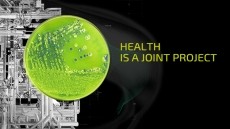FDA hits sanofi pasteur with warning letter
half of America's influenza vaccines are made, has been served with
a warning letter by the US Food and Drug Administration (FDA),
asking for measures to ensure batches of its flu shot ingredients
do not become contaminated again.
The warning letter follows a response of sanofi pasteur to the FDA regarding its inspection of the Swiftwater facility in April, when the regulator issued the company with a "483 form," a list of observations detailing failures in sterility testing and aseptic conditions.
But sanofi failed to alleviate the FDA's concerns and so received a warning letter, which, unlike a 483 form, requires a written reply within 15 working days and can lead to additional enforcement action if corrections are not made.
The most serious violations pertain to the manufacturing of monovalent concentrate, an intermediate derived from one of the three influenza strains used to produce sanofi's trivalent Fluzone vaccine.
Eleven batches of the monovalent concentrate were discarded in March when they failed their first sterility test due to bacterial contamination.
"We alerted the FDA to the contamination, which was caused by a filtration device that allowed some of the bacterial organisms from the chicken eggs where the virus is grown into the concentrate," David Johnson, sanofi pasteur's director of scientific and medical affairs, told In-PharmaTechnologist.com.
"We do not expect this incident to affect production and we aim to meet our target of 50m doses of flu vaccine this year."
Although both the FDA and sanofi agree that the contamination did not reach the finished vaccine, and so no recall is required, in its warning letter the agency slams the vaccine manufacturer's response, accusing it of inadequately and ineffectively investigating the incident and not validating the microbiological method used to increase environmental monitoring surveillance.
In addition, sanofi's production and process controls come under attack, with the letter stating that the review of batch production records for Fluzone by the quality control unit does not include product contact equipment sterilisation records.
Moreover, sterile vent filters used on the sterile influenza bulk concentrate tank and on the dispensing siphon unit were not integrity tested by sanofi after sterile filtration, according to the FDA.
Sanofi's laboratory controls are also questioned, as bioburden sampling size used was not representative of the lot size in determining pre-sterile filtration bioburden levels.
"The deficiencies described in the Form FDA 483 and this letter are indicative of your quality control unit not fulfilling its responsibility to assure the identity, strength, quality, and purity of your drug product," wrote FDA's director of enforcement David Elder.
"We believe that your response did not provide sufficient detail to fully assess the adequacy of the corrective actions."
Apart from the sterile filtration of monovalent concentrate, the letter identified several deviations from current good manufacturing practice (cGMP) that have yet to be resolved.
Among them is a failure to establish a system for maintaining equipment to control aseptic conditions; failure to follow appropriate written procedures to prevent microbial contamination of drug products purporting to be sterile; and failure of the quality control unit to ensure that errors are investigated.
For example, during aseptic filling operations for the meningococcal vaccine Menomune, an operator was observed with head and torso over partially stoppered vials while loading vials onto lyophilisation trays.
What is more, eleven analytical methods have not been validated or qualified since sanofi's 2001 commitment to validate or qualify all test methods.
The company is even accused of not reporting to the FDA failures of violations it was aware of, such as product complaints concerning glass in the tetanus and diphtheria vaccine Decavac.
If sufficient remedial action is not taken, the letters warns of license suspension, revocation, seizure, or injunction.
Nevertheless, it is unlikely sanofi will let it come to this and the facility will carry on operating for the time being, leaving policymakers and the public breathing a sigh of relief.
In 2004, contamination in Chiron's vaccine plant in England cut flu vaccine supply by half, causing a widespread shortage.
Sanofi pasteur is one of only three licensed manufacturers of injectable vaccines in the US and has a government contract to manufacture inoculations for avian influenza in case of a human pandemic.









